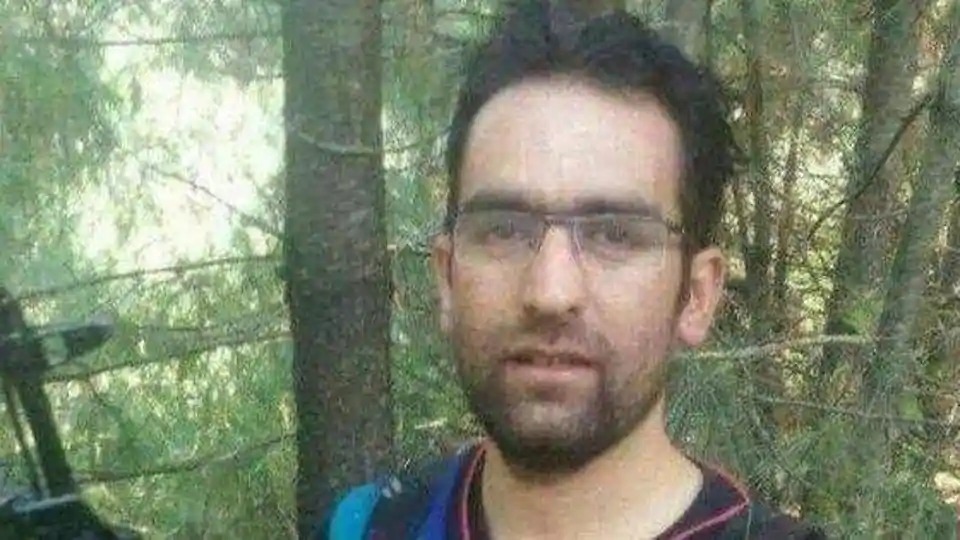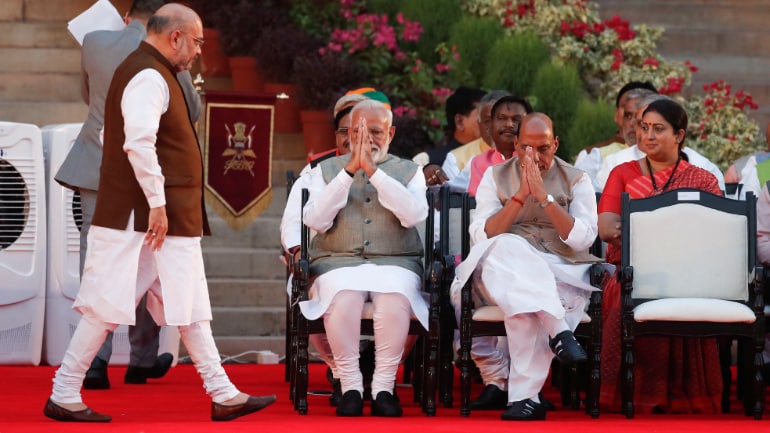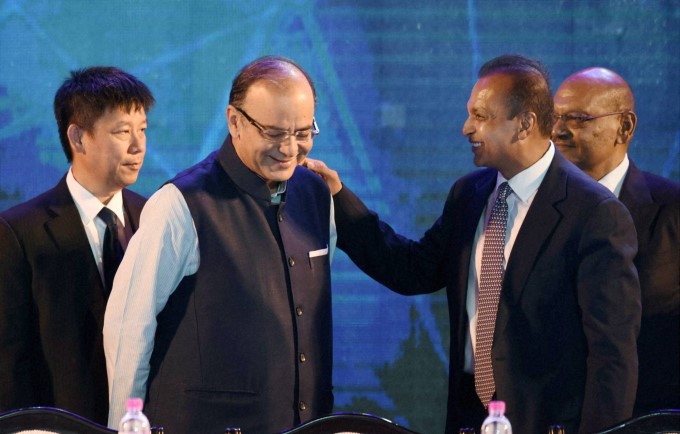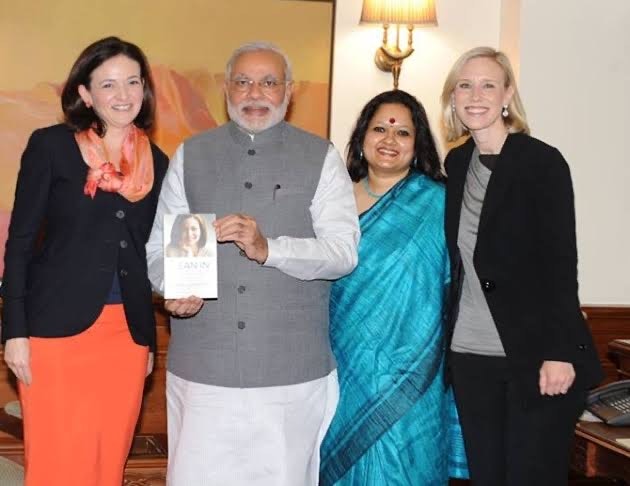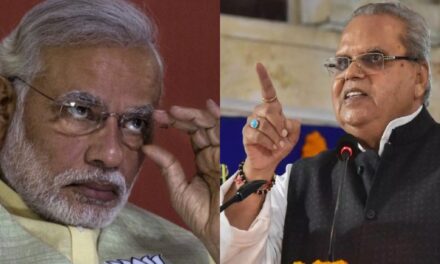[splco_heading size=”15″ align=”left” margin=”30″]Riyaz Naikoo, the operational commander-in-chief of Hizbul Mujahideen (HM), a militant group, was killed in a gunfight with the government forces in his native village of Beighpora in Awantipora town of Pulwama district. He was 35. [/splco_heading]
The gunfight began Tuesday night, after a joint party of the army’s 55 Rashtriya Rifles, Central Reserve Police Forces (CRPF), and the police, zeroed in on a particular house following specific inputs.
Naikoo had aspired to become an engineer, and ended up studying science and mathematics in college, his father Asadullah had said .
After his graduation, Naikoo taught mathematics at a private school till around the civilian uprising of 2010, in which government forces had killed nearly a hundred civilians among them, the alleged killing of a teenager, Tufail Matoo, proved to be a catalyst for him to join the militancy.
In 2012, Naikoo picked guns and ended up being one of the longest surviving militants of the Hizbul Mujahideen in the Valley. Categorised as an A++ category militant, he carried a bounty of Rs 12 lakh for his capture.
A day after security forces eliminated terror group Hizbul Mujahideen’s Kashmir chief Riyaz Naikoo in a joint operation, the terror group’s Pakistan-based boss Syed Salahuddin said the sacrifice would help them achieve the mission that they had set out to achieve.
Salahuddin, who also heads the alliance of pro-Pakistan terrorist groups, called the United Jihad council, warned India that the Kashmir issue is a spark that could set off a fire that envelopes the entire region.
[splco_quote]Salahuddin was designated as a global terrorist by the United States in 2017. According to the US, Salahuddin had committed or poses a “significant risk of committing acts of terrorim”.[/splco_quote]
But that classification hasn’t made a difference to the Hizbul Mujahideen boss who has the support of Pakistan’s deep state and has been participating in public events for years.
The Pakistan government had then declared that it will not act against Salahuddin since the United Nations Security Council hadn’t classified him as a terrorist.
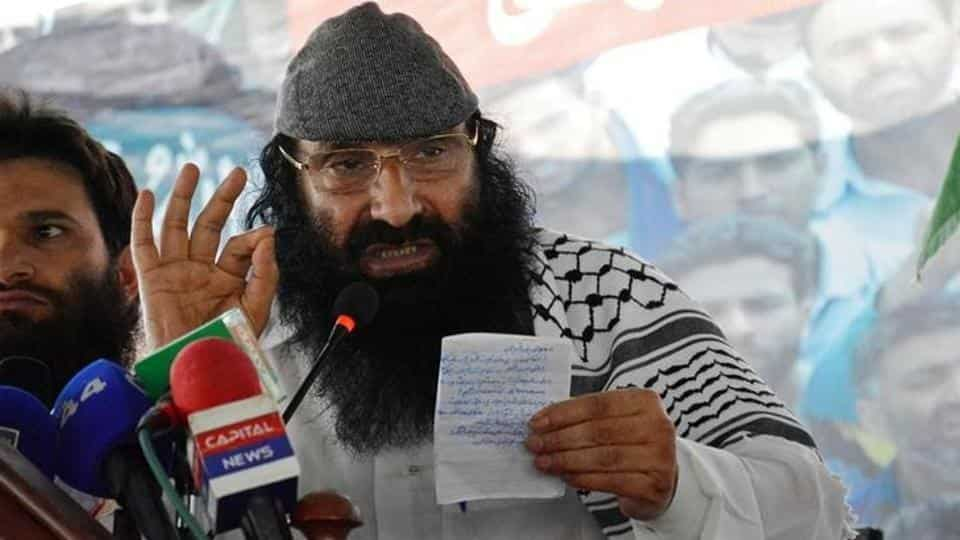
Syed Salahuddin runs the Hizbul Mujahideen from Muzaffarabad in Pakistan-occupied Kashmir Photo Source : Reuters
Islamabad hasn’t acted against those designated by the UNSC either. There are about 130 individuals who have been sanctioned by the UNSC.
On them, Pakistan says it can’t find most of the individuals sanctioned by the UNSC due to inadequate or inaccurate information about them in UNSC dossiers.
Riyaz Naikoo’s elimination is a huge setback to the terror group and will lead to its weakening in south Kashmir, where the Hizbul has traditionally been active, a senior police officer said.
This part of Kashmir is also where Riyaz Naikoo had an extensive network. He had many hideouts in this area, Inspector General of Police Vijay Kumar said on Thursday.
Kumar said they had already busted six of his hideouts. The one where he was found dead after the firefight with security forces was his seventh.
Because there was a possibility that this house could be linked to others in the vicinity via underground tunnels, the security forces even brought earth-digging equipment, including four JCB machines, to block any such effort to slip out.
[splco_quote]Kumar said it was natural that the terror group would be impacted by his elimination. “Riyaz Naikoo was the most experienced… When the next one is named, we will go after him…. We already know who it is going to be,” the Kashmir region’s top police officer said. [/splco_quote]
Syed Salahuddin’s statement on Thursday did not name anyone. He hadn’t formally designated Riyaz Naikoo either who was seen to be the de facto chief of the Hizbul in Kashmir.

